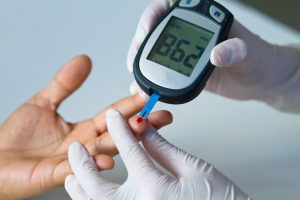The Effects of Sleep Deficiency on Your Body
Hello Everyone! I am not talking about the odd night of fitful sleeping. I am talking about sleep deficiency, where you regularly sleep poorly.
Sleep deficiency is a severe health condition that can affect you physically, mentally, and emotionally, increasing the risk of disease, accidents, and even ADHD in children.
The good news is that I will tell you how you can address your sleep quite dramatically if sleep deficiency is what you experience!
Can You Reset Your Sleeping Habits?
What Happens When You Don’t Sleep Enough?
What Is Circadian Rhythm?
How Do You Sleep Well?

Can You Reset Your Sleeping Habits?
Yes, you can turn your sleeping patterns around through Eat Burn Sleep. (Sleep is an essential component treated on the Eat Burn Sleep lifestyle).
Gut health, movement, and sleep work synergistically together. Sleep will be less effective without a healthy gut, the correct type of exercise, and stress reduction techniques.
Gut health aids sleep by promoting the production of serotonin and dopamine, which are feel-good neurotransmitters. Gut dysbiosis causes a lack of serotonin in the gut and induces inflammation, thus affecting sleep-wake cycles!
Inflammation is an essential player in the sleep-gut microbiome relationship. Reducing inflammation is critical.
Even if you have been getting by on little sleep for decades or are used to working shifts.
Or have conditions that may cause wakeful cycles, like depression, anxiety, or gastrointestinal disorders. Since reducing inflammation through Eat Burn Sleep aids in treating anxiety, depression, and gastrointestinal diseases, this, in turn, aids in reducing insomnia.

What Happens When You Don’t Sleep Enough?
Sleep deficiency is not really about how little sleep you are getting. Sleep deficiency is more about the quality of sleep you have and whether you are getting the right type of sleep.
Disruptions in the natural circadian rhythm have a negative impact on your body.
Without good quality sleep, your body is more susceptible to disease and can involve health changes to the brain, heart, breast, prostate, uterus, gonads, liver, pancreas, kidney, etc.

Sleep deficiency can lead to:
-
- Weight gain/obesity
- Altered metabolism
- Heart attacks
- Heart disease
- Diabetes
- Chronic stress
- Neurodegenerative disorders like Dementia
- Anxiety
- Depression
- Infertility
- Cancer
- Gastrointestinal diseases
Of course, sleep deficiency can lead to cognitive dysfunction, which affects your memory, learning, resolving, reacting, coping, making decisions, and dealing with emotions.
In a child, it can result in hyperactivity symptoms and difficulty focusing and learning.
There are safety issues when you don’t have good quality sleep and are operating machinery or driving, which may cause injury. Lack of quality sleep can make you feel irritable and less sociable and experience mood swings and behavioral changes, even!
Sleep deficiency can make you move slowly, have less energy for exercise, and induce unhealthy cravings, which encourages weight gain, type 2 diabetes, and joint issues.

You may have sleep deficiency if you suffer from any of these or have excessive daytime lethargy.
Not enough sleep can activate the expression of inflammatory genes. Inflammatory activity, in turn, can influence sleep.
What Is Circadian Rhythm?
Your body clock has a 24-hour circadian rhythm, vital in the sleep/wake cycle, including sleep duration and continuity.
Metabolic hormones such as Human Growth Hormone (HGH), leptin, Ghrelin, melatonin, and cortisol rely on good sleep quality and the circadian rhythm.
When the sun rises, cortisol is released in your body, preparing you to wake up and get going!
The circadian rhythm activates many body and brain mechanisms during daylight hours, designed to keep you alert.
When it gets dark, your body starts to deactivate ‘alert’ signals and produces melatonin, which tells your body it is time to prepare for sleep. It increases as the night passes, but the inclusion of artificial light inhibits the process and stops the natural cycle, making it harder to fall asleep.
Throughout the night, HGH, leptin, and Ghrelin continue to do their work. See below for what else happens to your body during good-quality sleep.

What Important Health Functions Happen During Sleep?
Functions that happen during sleep increase longevity and healthier body composition. Without healthy sleep, essential functions become dysregulated, and our bodies become inflamed.
-
-
- Human Growth Hormone (HGH) is released from the pituitary gland. It helps lower body fat levels and repairs the body, including the turning over of bone, collagen, and muscle. It replenishes the lining of your blood vessels. This process occurs during deep sleep, has a role in puberty, and declines with age. (Exercise also induces HGH).
- Leptin and Ghrelin are regulated. They increase and decrease throughout the daytime, signaling the need for calories. Grehlin is responsible for hunger, and leptin is responsible for feeling full. If sleep is not good, Grehlin can increase, and leptin can decrease, which means you can never feel satisfied with what you eat.
- It affects how your body cells react to insulin, the hormone that controls blood glucose. Cells repel rather than absorb insulin. Glucose intolerance and insulin resistance can occur without good sleep, which is another connection between obesity and diabetes.
- Genes in the brain are regulated.
- Resistance to oxidative stress occurs with good sleep. Sleep deficiency alters cellular physiology and can potentially generate free radicals.
- The immune system fights infections during sleep. So, lack of sleep means a lack of natural killer cells fighting off pathogens and malignant tumor cells.
-
You can see why there is a strong link between circadian disruption, lack of sleep, and the development of diseases.

What Happens When You Stay Up Late Regularly?
When you stay up late regularly and reduce your sleep, you can put your body into sleep deficiency.
You may ‘treat’ yourself to a late night after busy days, work late on your laptop, or keep checking your phone apps in bed.
If sleep is a basic human need, like breathing, eating, and drinking, staying up late regularly means taking away critical health matters vital to life.
Reducing sleep on purpose to stay up late watching TV, looking at screens, and being exposed to artificial light, impacting the circadian rhythm, is not a ‘treat’ for your body.
Essential functions for health occur during good quality undisrupted sleep, as mentioned above.
This is why shift workers often have an increased risk of developing chronic heart disease or why they are most likely to suffer depression, cognitive impairment, and obesity.

How Do You Sleep Well?
You can reprogram your sleep, health, mind, and body with Eat Burn Sleep because gut health influences sleep quality. Gut bacteria affect circadian rhythmicity.
Improving gut health reduces inflammation, which treats disease and protects from disease.
Have you tried these anti-inflammatory recipes: Sesame & Sumac Lamb Chops, Turmeric Spinach, and Quinoa Taboulé?
You start with a 6-week reset, which is powerful!
This healthy lifestyle protocol ensures you have the best health possible without compromise, restrictions, or disrupting natural body cycles.
Stimulating the vagus nerve, improving core strength and bacteria diversity in your stomach, and reducing tension and inflammation in the body form part of it.
As you reduce inflammation on this protocol, you learn more about how your body works and what is and isn’t good for you mentally and physically.
Because we are all unique, you personalize your anti-inflammatory protocol by incorporating nourishing tailored health advice (from the Personalized Advice section).
Science-backed research and personalized qualified nutritionist advice are simple to follow.
Next-level health will have you sleeping beautifully in no time.
You won’t believe the difference it makes!
Your family, friends, and colleagues will notice, too!
Be safe and be healthy.
Have a lovely day!


